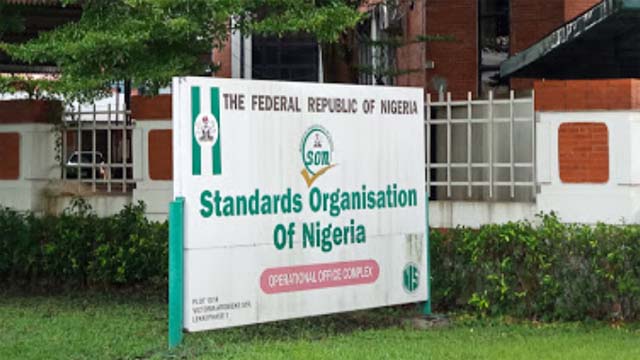PAG Felicitates Muslims on Commencement of Ramadan Fast
February 18, 2026TOP TEN MUSLIM UNIVERSITIES IN AFRICA
February 14, 2026ANALYSIS: Why Nigeria GDP is not the best in Africa Despite having the largest market
February 10, 2026SON pledges commitment to standardization of products and services
SON pledges commitment to standardization of products and services

The Standards Organization of Nigeria (SON) has vowed to protect Nigerians by maintaining standardization of products and services in the country.
Mr. Timothy Abner, Director, Training Services, SON, disclosed this during a tour of its laboratories in Ogba, Lagos, by members of the Federal Airports Authority of Nigeria FAAN Aviacargo Roadmap Committee.
He said, the results issued from their laboratories are judged as acceptable globally.
The Committee’s inspection of the Standards Organization of Nigeria, SON laboratories is intended to seek collaboration with the organization in order to prevent the rejection of Nigerian goods through the country’s airports.
While emphasizing that most Nigerian exports are rejected at the point of destination due to non-certification, failure to meet standards, and poor packaging, the committee’s coordinator, Mr. Ikechi Uko, stated that in order to avoid rejection, it is critical to test products in Nigeria and meet global certification before export.
“That is what led us to the understanding that we need labs that can help the process without a lab that product is likely to get rejected. Our desire is to make this laboratories our intrinsic part of our export process, we do not export anything that does not have certification”.
Directors of Training and Laboratory Services SON, Mr. Timothy Abner and Richard Adewunmi harped on educating the farmers and exporters of what needed to be done for their produce to be accepted.
“We have like five or six parameters to test for a product. It is expected that, if you are going to export product, your process of testing should not start when your product is already at the airport, samples should have been taken before you take it out to the airport”.
On the issue of testing of Aviation fuel at the seaport, the Managing Director FAAN, Mr. Kabir Mohammed who led the committee to SON, said the organization had not been given its rightful place at the ports to do its job to ensure contaminated fuel does not find its way to the airports.
“While DPR as much as they are the regulatory body for this petroleum products, they also may not necessarily have the expertise but those who have the expertise have been kicked out”.
Laboratories inspected by the committee include amongst others, electronics, micronutrients, paints, cement, Generator, meter, cosmetics, polymer, water additives and non alcohol and agrochemical.








